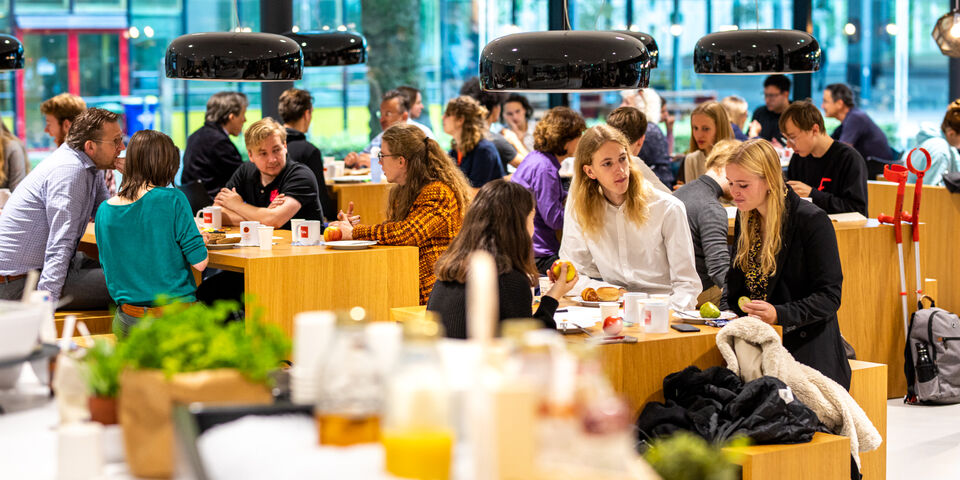Discussing well-being over a croissant and a bowl of yoghurt
The kick-off to Diversity Week, in the shape of a breakfast gathering, was attended on Monday morning by more people than organizier and Student Diversity Officer Lara Hofstra had expected. Forty employees and 75 students discussed experiences related to social safety. “Inclusivity starts with an open and honest conversation.” Cursor ate a breakfast roll with them.
In Atlas early on Monday morning more than a hundred members of the TU/e community gathered for a communal breakfast, held as the opening event of Diversity Week. In welcoming everyone, the Student Diversity Officer explains that the plan is to sit next to people you don't know. “Tell each other about your positive experiences and think about where there is room for improvement,” says Hofstra. For her part, she touches briefly on the guides to social safety, for both students and employees, and the confidential counselor on the student boards.
Once seated, a student tells that when his living arrangements turned sour during lockdown he felt the support of his study association Intermate. The experience of someone else at his table provides a contrasts. “My friend was finally ready to ask the advice of the student psychologist, but when he got in touch he was told there was a six-week waiting list.”
In the ensuing conversation the breakfast company hits on something that can be improved. By chance, they are joined at that moment by Chief Diversity Officer Evangelia Demerouti. Like Hofstra, Executive Board members Susanne van Weelden and Robert-Jan Smits, Corlien van Dam ('owner' of the Social Safety Plan) and community manager Erik de Jong, she is walking among the participants, listening in.
Tips
“Actually a student who gets in touch with a student psychologist should be called up that same day. Even if only briefly, just to let the student know they've made a sensible decision in taking this first step and that help is on the way,” hears Demerouti. Someone else makes the point that when it comes to diversity, the emphasis is often put on diversity in its psychological guises, but little attention is paid to people who are physically less able.
“A good many of the guests stayed for longer than the planned hour, and that is a good sign,” says Hofstra afterwards. She is also pleased with the news Robert-Jan Smits gave her that she and a number of students keen to improve diversity, inclusion, well-being, and social safety will soon be invited to talk further with the Executive Board. “It's a good start, hopefully it will become a monthly conversation.”



Discussion